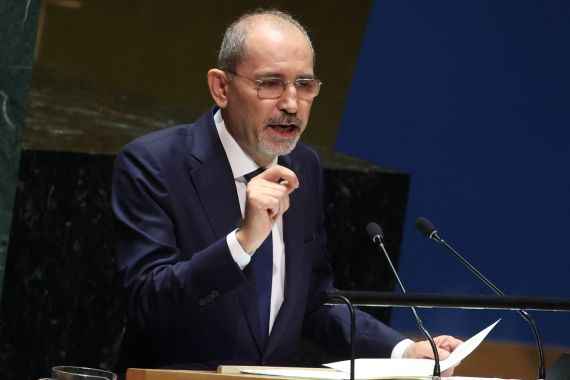Jordan has announced its refusal to sign an energy and water exchange deal with Israel. The decision, conveyed by Jordanian Foreign Minister Ayman Safadi, comes as a response to what he labels as Israel’s “barbarism in Gaza,” a situation he deems incompatible with the prospect of bilateral agreements. The move not only puts a planned agreement on hold but also adds a new layer of complexity to the fragile peace maintained between the two nations since 1994.
Regional Dialogue Unraveled by Conflict
Amidst regional discussions on collaborative projects, the recent Israel-Hamas conflict has proven to be a disruptive force, causing the breakdown of a proposed energy-water exchange deal. Safadi, in an interview with Al Jazeera, expressed his skepticism about the feasibility of such agreements amidst the ongoing conflict. The fallout from the conflict has effectively halted the progress of regional initiatives, bringing into question the possibility of diplomatic collaboration.
Jordan-Israel Peace Agreement Under Strain
The longstanding peace agreement between Jordan and Israel, signed in 1994, is now facing renewed challenges. Safadi emphasized that the original intent behind the accord, contributing to a two-state solution, has not been realized. Citing Israel’s failure to uphold its commitments, Safadi asserted that the peace deal must remain in a state of dormancy. The current focus for Jordan, according to Safadi, is directed towards addressing what he labels as Israel’s “retaliatory barbarism” in Gaza, indicating a shift in diplomatic priorities.
Jordan’s Strong Condemnation of Israel’s Actions
Jordan’s condemnation of Israel’s actions in Gaza has taken a decisive turn with the immediate recall of its ambassador in response to what the country deems an “unprecedented humanitarian catastrophe.” Safadi underscored Jordan’s commitment to denouncing Israel’s aggression, which he contends can no longer be justified as self-defense. The country has joined other Arab and Muslim nations in strongly condemning Israel’s bombardment of Gaza, emphasizing the need for international intervention to halt the ongoing conflict.
As Jordan takes a stand against entering dialogue on the future of Gaza amid the conflict, the region is grappling with the implications of strained diplomatic relations. Safadi’s firm stance reflects the urgency felt by Jordan and its allies to address the humanitarian crisis in Gaza and holds broader implications for the geopolitical landscape. The refusal to proceed with the energy-water exchange deal marks a significant diplomatic shift, emphasizing the prioritization of humanitarian concerns over bilateral agreements in the midst of a conflict that shows no signs of abating.
















